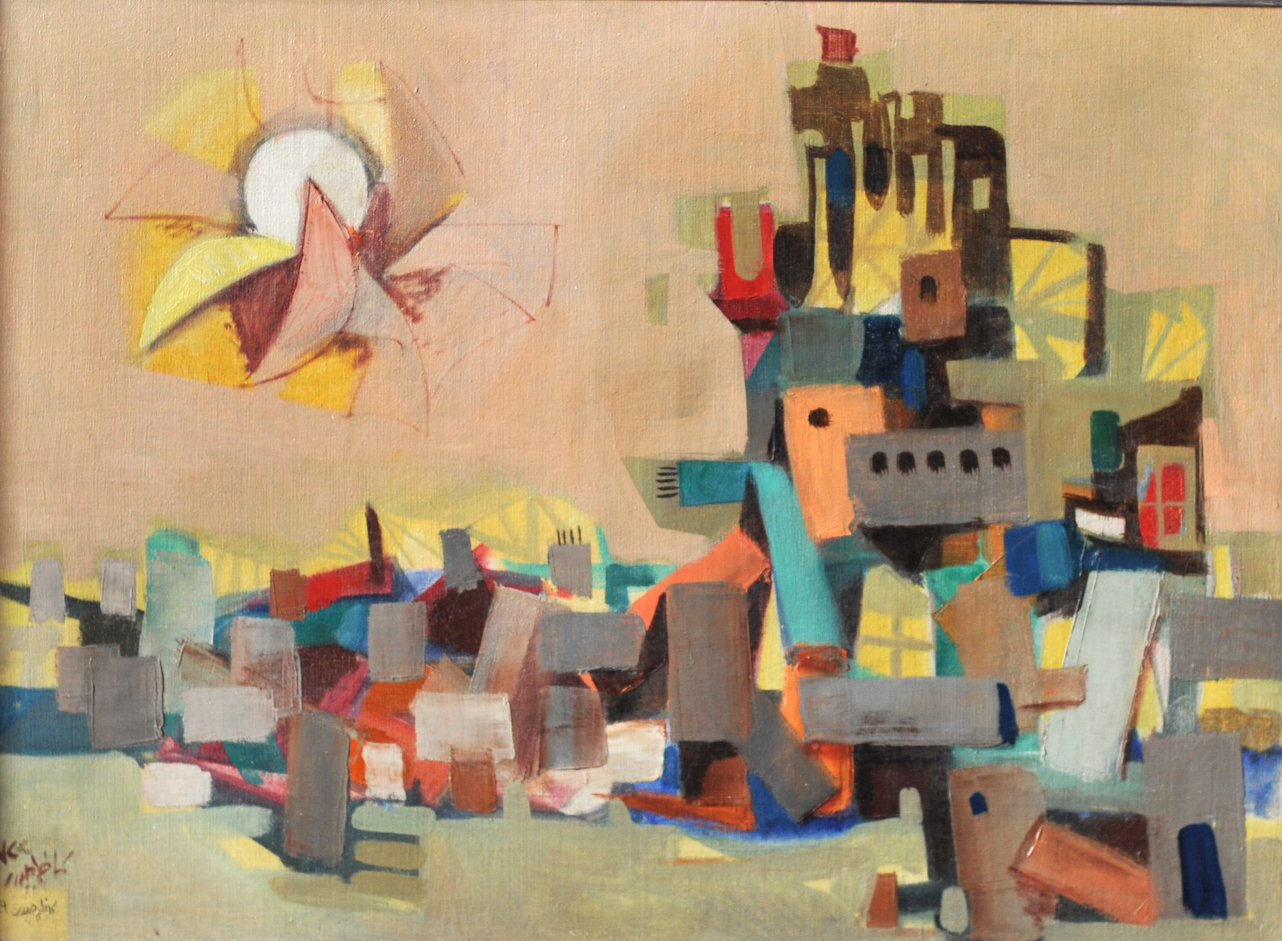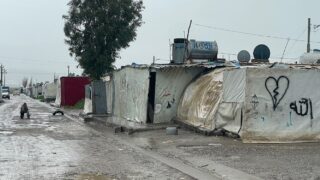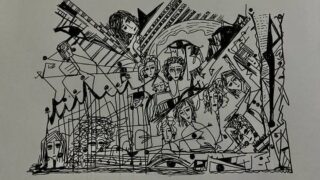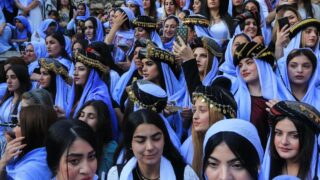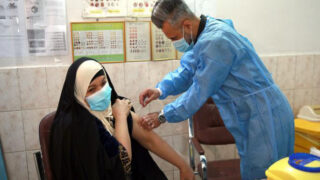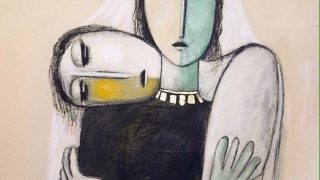Mosul is one of the most prominent regions of Iraq that has undergone a drastic demographic shift as a result of it being located on the historic war line in the region. Its economically, and subsequently politically, influential geographic location has made the city a sole connecting point between areas which are among the greedy interests of major players, until the moment it fell under the terrorist ISIS occupation in June of 2014. Iraq as well, one of the biggest historic conflict zones, has undergone demographic shifts as well as mass migrations of its inhabitants of the lower east, for long centuries that date back to B.C. eras.
Shattering the Social Contract
During the successive occupations, the city of Mosul was stripped of a sense of belonging, a lifestyle, and a cultural identity, only to embrace others which were made obligatory by “the new conquerors”. This unsteady timeline produced diverse sources of governance for Mosul and for its geographic role politically, economically, and even culturally and religiously. It is difficult to consider that there is an indigenous Mosul “race” or “group” due to the continuous dissolving of its inhabitants with the incoming flux of migrators, and the formation of new entities which either invest in the old cultural and social identities or dismiss it to the advantage of the values of new-coming cultures, which are in turn also often dismissed with the arrival of newer colonial cultures to the region. And with every shift, the inhabitants of the city of Mosul and its surroundings pay a very high price of destruction, displacement, murder, exile, or life under one siege or another. Most of the time, the result is complete banishment, as is the case with the latest distressing event that Mosul has experienced upon its occupation by ISIS.
The logic of sovereignty made it necessary that the Iraqi government performs a military operation to retrieve the city of Mosul; an operation in fact considered the largest in scale by the new political government in Iraq since 2003. The paradox was the fact that at the time the terrorist organization occupied Mosul, in the summer of 2014, it had little human or military or logistic resources in comparison to the resources of the governmental forces or the Peshmerga at the point of the collapse. This paradox does not acknowledge that ISIS had insurmountable strength. It does, however, point out to the factors which led to the fall of Mosul; factors which usually go unrecognized, and which will remain unnoticed even after the city has now been retrieved (Iraqi forces have taken full control over the both the left and right parts of the city on the 8th of July, 2017). The issue involves the deconstruction of the cluster of relationships which constitute the concept of “a city” and its belonging to “the homeland’, provided that the homeland is the geographic, political, and cultural incubator to that city. This deconstruction adds to the deep mistrust in the political system as a result of the dissociation of internal relations that link the constituents of the city with the history of civil coexistence, as well as the deterioration in the social awareness of the feasibility of enduring as a unified society and as part of the historic pattern of survival of the human mass in Mosul, in its intense diversity, in one frame.
The most dangerous indicator of the fall of Mosul was the shattering of the social contract between the components of the city. This served as an eradication of the backbone of civil-urban stability, its demolishment, and its substitution by frightful walls of isolation between the people of Mosul, on the basis of political division and religious-sectarian differences, as well as regional dissimilarities, stark class disparity, a sense of defeat, and lack of patriotism. All of which are extremely sensitive and dangerous factors that have been ignored in favor of the direct political factor that overwhelmed all the crises of the country, and has turned into a thick dark film overshadowing any consideration to the actual causes of the more dangerous established given.
Accusations of Treason Versus Revolt
In the year 2005, during the first Iraqi parliamentary elections in the process of “the democratic transition”, Sunni citizens of Mosul boycott the elections, leading to an extremely unconvincing political response which manifested in the Alliance of Kurdistan winning 31 seats representing the state of Mosul in the federal parliament, out of a total of 41 seats. The same thing happened with the board of governorate administration, where the Kurdish body dominated the results. However, the percentage of Kurdish inhabitants (including inhabitants of disputed areas) did not exceed 20%. The Sunni boycott, the heavy participation in counter-voting, and the desire of the Iraqi government along with the American administration and regional forces to avoid a re-vote in order to prevent further complications in the political scene; all of the above had reinforced a deformed political reality whose aftermath has become obvious throughout the decade that followed that particular “suicidal” option. The Sunni population of Mosul embarked on this misstep at the time as a result of the violent unexpected shock they received upon the collapse of the previous regime. It is not possible to say that the population of Mosul were absolute supporters of that regime, but Mosul was considered to be a fortress of rigorous nationalism and religious conservatism, as well as a legacy-bearer for the military elite pertaining to the city, ever since the establishment of the Iraqi army in 1921.
With the decision of the disintegration of the Iraqi army, that elite remained implicitly accused of treason against the new regime, and publicly punished by banishment. It was possible to contain the national fury of Mosul and its military elite, and it was possible to deal with the complicated social construct of Mosul in a way that is considerate to the city’s particularity and the city’s weight and its importance in supporting the new regime, and then relocating it in the heart of national service.
The Sunni revolt was fierce, starting from April 21st 2003, when the 5th Division brigade of the Iraqi army abandoned their grounds in Mosul without a fight, with the approach of the American forces (a moment reminiscent of the night of the city’s fall during Al Maliki’s rule), up until the moment ISIS was created and the rule of the Caliphate was declared. That shameful withdrawal was in fact tactical in order to manage the rebellion in the subsequent years.
Mosul lived through a recycling of the potential power, from defending a devastated regime to confronting an existing one. This recycling process does not mean that the power will maintain its relevance in the same model which has become unacceptable and disintegrated. This is why the Mosul military experience was used to manage the revolt (at least inside Mosul itself), and then was polarized by armed groups, mostly the extremist Islamist ones or even the less extreme ones that claim a patriotic Arab nationalist orientation.
The dismissal of those (military) experiences because of their relation to the previous regime and their eradication as they are considered “an example of absolute loyalty” to that regime was a huge mistake perpetrated by the new regime. Its eventual cost was a brutal battle with a terrorist organization that went on for 8 long months, leaving behind enormous destruction, open human wounds, a notorious forcible displacement of the original components of the city, a cultural wipeout, and a failing containment policy in the consecutive years. It is a failure that the prime minister of previous governments Nouri Al Maliki was responsible for, because of his discriminating sectarian behaviors and his transformation of Mosul into a military base controlled by corrupt military men, in addition to his quarrels with different political parties, not taking into consideration a deeper look into the real weight of Mosul’s political power over the future of the country as a whole, or the threat of its revolt exploding and being taken advantage of regionally by an organization such as ISIS.
The Eradication of Diversity
Mosul was known to be an inhabited city where gods were worshipped in 1800 B.C. It is thought that its name “Ninaveh” was derived from the name of the Assyrian leader “Ninos”, who was the first founder of the city, according to the papyrus of the Greek historian Ctesias, the doctor of the Achaemenid king Xerxes II. The name of Mosul, however, bore a relation to the incident of the painful ruin of the city. In 612 B.C, the Assyrian empire in Ninaveh collapsed and the devastated city was called “Mashpel”. The term later morphed into “Moshpel” in Greek tongue (the Greek had also occupied the city). As different invaders and dialects crossed the city, its name became “Moslin”, then “Mosul”, and finally “Al-Moṣul”. Nonetheless, the symbolic significance of the name remained – like a mythological explanation - linked to “ruin”. After the 8-months-war ended, ancient Mosul was nothing but ruins of an extinct city whose cultural, historic, and civilizational features were forever lost by the intentional act of sabotage that the terrorist organization had perpetrated under the enormity of firepower and ferocity of the fight between the liberating forces and the invaders.
As a direct result of the wars and stormy conditions that Nineveh went through, the roots of diversity in the city were barbarically being plucked out of its soil, overpowering the cultural diversity in it. Historic records mention that the Sasanians perpetrated vicious massacres as punishment to the Christian residents of Mosul. After a series of repetitive defeats against the Byzantines, Shapur (the second Shahanshah of the Sasanian Empire) executed a violent genocide of the Christians of Nineveh between 341-346 A.D, murdering its archbishop Simon Bar Sbai, along with thousands of the followers of the Church. That was perhaps the first act of abusive violence against Mosul components.
The very same event has repeated itself with the Christians of the city, only this time instead of a humanitarian massacre the terrorist organization forced the displacement of Christian citizens of the city, and confiscated their property and estates and personal belongings. Their homes were considered to be “Islamic State Waqf” (assets of the State), and these houses were marked by the letter “N” (In Arabic: ن) to indicate that they are “Nasara” (Christians). For the first time in 18 centuries the church bells of Mosul were silent on the 20th of August 2014. Churches were doomed to either destruction by bombings, or an identity alteration turning them into mosques, or robbery and a shutdown.
ISIS was brutal to Yazidi residents as well, committing a bloody religious cleanse and liquidating huge numbers of Yazidis, kidnapping young girls as “Sabaya” (women slaves), sexually abusing them, enslaving and physically raping them, culturally forcing some of them to convert to the extremist “takfiri” understanding of Islam. It was indeed a terrible tragedy for Yazidis who took to the mountains of Sinjar for refuge (35 Km), and who eventually met their demise from sickness, hunger, thirst, or even suicide. This tragedy was the 97th of the long Iraqi Yazidi string of tragedies which has always been commemorated through their “Mawawil” songs, stories, and sorrowful musical epics.
While ISIS’ offences against Iraqi Shia Turkmen remained forgotten and unexplored, they certainly aren’t any less brutal, as they are “Rafidha” (Shia) and considered direct enemies of the terrorist organization.
ISIS’ theory of the claimed caliphate rule has cleared Mosul of its diversity. It has transformed the civilized city into a single-dimensional society, ruled by “Sharia” law forced on its Sunni citizens, and creating deep spites whose consequences will haunt the city, particularly because some citizens of Mosul engaged in the behaviors of ISIS against their own fellow citizens of other Iraqi groups. They were people who have lived side by side with them for decades, and perhaps centuries, until the violent extremist floodgates drowned the bygone past of civil peace and societal stability, eliminating Mosul’s soul that had survived throughout history but had finally crashed on the stubborn rocks of Sinjar Mountains.
Neither the Christians nor the Yazidis, Turkmen Shia, Shabak, or the small group Mandaeans ever thought that they would be part of such a harsh confrontation with their fellow citizens who engaged in terrorist activities. The outcome of that confrontation was a profound social trauma and a collapse of what was left of the confidence between them, which acted as a shield from a clash for 14 years. These outcomes became a frightful nightmare where the native of Mosul is uprooted from his land and from his distinct accent and historic cultural characteristics, only to be expelled from his city and stripped of his past, identity, and future, as his present becomes a pathway of hell leading to refugee camps, banishment, and massacres.
The Impossibility of Citizenship
The Iraqi government counts on the return of the displaced people of Mosul from refugee camps and cities of refuge in Kurdistan and other Iraqi areas to Mosul. However, it seems to be a burdensome task considering the vastness of the destruction in the city and the difficulty of restoring it in the near future. The greatest and most dangerous question concerning the city’s future is the effort to convince Christian, Yazidi, and Turkmen Shia citizens to return to their city. It seems that this would be near impossible, as these citizens have severed their relations to Mosul upon their degrading and painful expulsion, having lost their families and property, not to mention the devastation of the center of their civilization and their historic and religious monuments.
This dismissal on the part of migrants means in its essence that Mosul has become without roots, without a future that springs from its cultural distinction and diversity. It is possible to reconstruct or restore mosques, churches, convents, and even archeological sites, but how is it possible to restore the soul that once belonged to these places? Can the confidence in societal coexistence be redeemed? Even the Mosul Sunni spirit which produced a moderate intellectual heritage, put the Arab music on the modern tonal scale, and created wonderful pieces of “Mouwashahat” (genre of poetic song); even that spirit has been kidnapped and disfigured. The extremist “takfiri” upheaval that had dissolved the entire region in melting pot of annihilation has wiped out the urban heritage of religious Mosul devotion and the accumulations of the renaissance created by the patriotic, leftist, and Arab nationalist surge. Mosul has now become bare in the winds of the newly-introduced extremist values of the “takfiri” extremism practiced directly on the ground, and the grudges implanted by the terrorists inside this society and its different groups.
An Aftershock
A new generation will grow up disconnected to the once prosperous civilized past of the city. Its only connection will be to the many tragedies present in its consciousness, the destruction that lies before its eyes, and the painful psychological experience that accompanies it. And when families will try to remember the Mosul they knew in bygone decades, their reminiscence will be like an imagined picture of a piece of heaven that has no physical existence in the lives of a newer generation whose psychological balance has been crushed under the weight of wars and scenes of slaughter, excessive violence, and religious persecution.
There are certain fears of a societal aftershock as a natural symptom of post-traumatic times. The questions are many concerning the extent of the Iraqi government’s ability to calibrate a balance in the liberated city, and its capacity to rehabilitate its citizens who have lived three harsh years under extremist governance that weighed in its devastating powers to shatter the civil and cultural relationships of society. If the government is unable to reconstruct the city and erase the remnants of ISIS’ destruction in record time, then the ruin left behind the battles and the lack of services and the political quarrel and sectarian conflict will all remain present in minds of the people of refugee camps or the people that stayed in the city. The psychological accumulations will again spark a situation that might be taken advantage of regionally, in the presence of incubators ready to recreate a more vicious version of ISIS… Mosul remains the weakest point where borders will be broken again, ushering the city into yet another bitter experience, affecting in its aftershocks the future of a fragmented Iraq, for the sake of non-patriotic ambitions.

